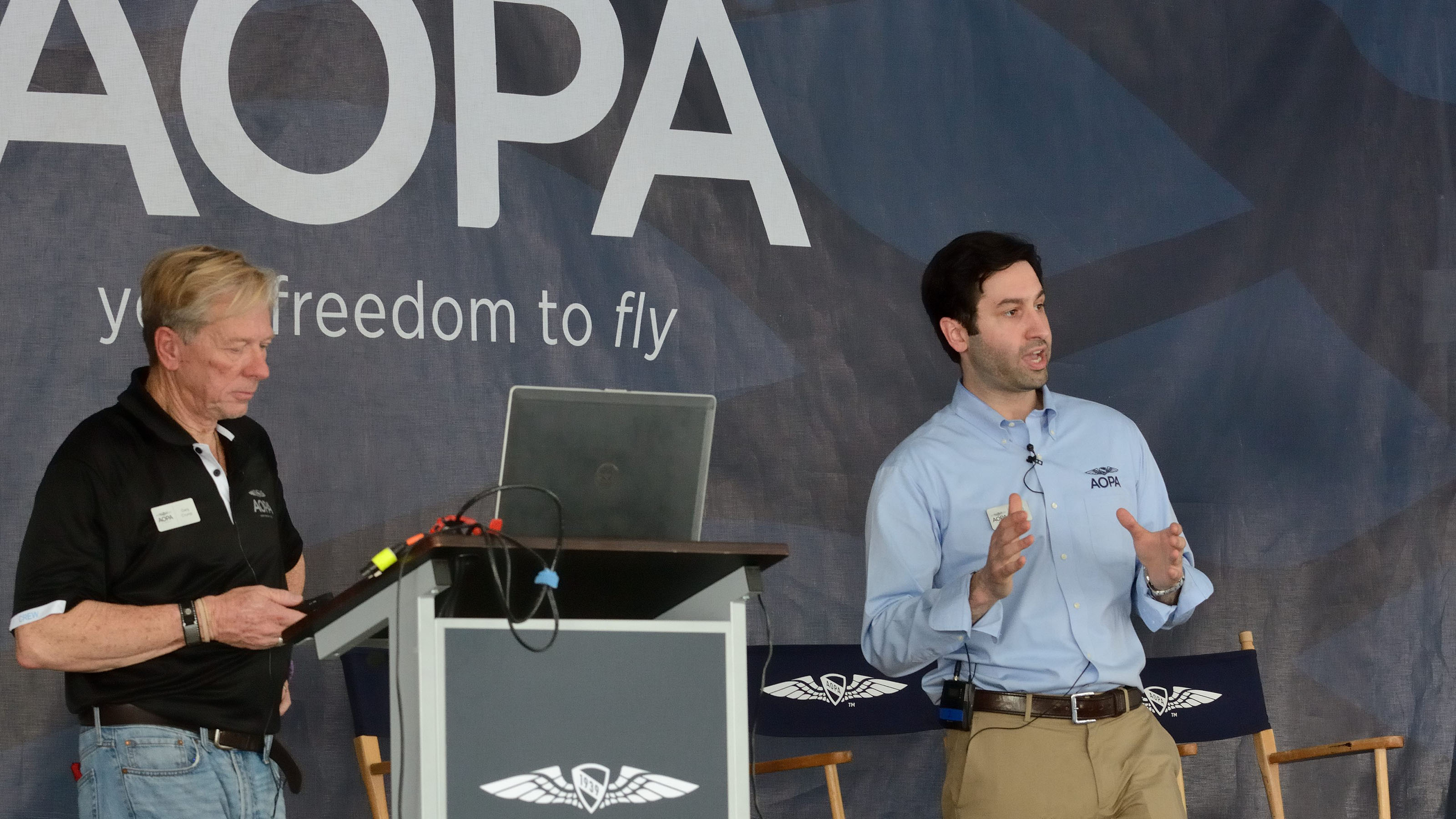Just what the doctor ordered
Members learn about new BasicMed, available May 1
A near standing-room-only crowd filled the AOPA Program Pavilion at the Sun ’n Fun International Fly-In and Expo April 4 to learn more about BasicMed, a new alternative to third class medical certification for many pilots, which becomes available May 1.
“BasicMed is the biggest thing to happen in general aviation in two decades,” said Gary Crump, AOPA director of medical certification. AOPA anticipates that BasicMed will affect hundreds of thousands of pilots.
BasicMed is an option for pilots to fly aircraft with a maximum takeoff weight of no more than 6,000 pounds, and authorized by type certificate or supplemental type certificate to carry no more than six people. “Right now you’re going to have to look at your type certificate, amended type certificate, or supplemental type certificate to see what’s spelled out,” Allen said.
More than 90 percent of the entire general aviation fleet will qualify for operation under BasicMed, Crump added. A pilot can carry up to five passengers, fly no faster than 250 KIAS, and up to 18,000 feet msl, under either visual or instrument flight rules. “There’s no flight for compensation or hire, but flight instruction is allowed.”
To be eligible, a pilot must hold or have held a medical certificate—regular or special issuance—that was current within the 10 years prior to July 15, 2016. The pilot also must have a valid and current driver’s license.
In order to qualify, every 48 months the pilot must visit a state-licensed physician and complete a medical information checklist, which then is signed by the physician. The pilot keeps the paperwork with his or her logbook, and must provide it to the FAA upon request. In addition, every 24 calendar months, the pilot must complete an online medical course and accompanying quiz; the pilot will be sent a certificate of completion, which should be kept with the medical information checklist. AOPA has completed an online medical course to meet BasicMed requirements; it’s currently being reviewed by the FAA.

What will the checklist cover? “The FAA prescribes what should be done for a class three physical,” Crump said. “Guidelines for the exam will be very similar.”
The goal is for the pilot and physician to have a dialogue and honest discussion about any physical issues, medications, or other concerns. The effects of any medications remains a concern, Crump said. “Under BasicMed, this is a discussion between you and your treating physician.” Some of the language establishing BasicMed is not very specific and is open to interpretation; for example, a physician might want to see a pilot more often than once every four years.
There are cardiac, mental, and neurological conditions that will require a pilot to obtain a one-time special issuance; AOPA offers more information about those conditions in its Fit to Fly resource section.
14 CFR Part 68, which establishes BasicMed, becomes effective May 1. “If the checklist comes out before May 1, it is our understanding that you can then see your physician and complete the exam,” Allen continued. Likewise, if the online course is approved and becomes available, it can be taken before May 1. A pilot might be able to complete both and then fly under BasicMed on its effective date.
“I think the majority of pilots have been very conservative,” Crump said. “I think that’s why we’ve been as safe as we have. Keep doing what you’re doing. We all have a responsibility to make this work.”
Crump and Allen took audience questions. Pilots whose medicals expire April 30 can fly under BasicMed beginning May 1, provided they have completed the checklist with their state-licensed physician and the online course. BasicMed currently is limited to flight in U.S. airspace, although AOPA is working to educate Canadian and Bahamian authorities about the new rule. Pilots will need to check the wording of their insurance policies to confirm coverage for BasicMed operations—if it requires medical certification “in compliance with the FARs,” they may be OK; if it says “holds a medical certificate,” or if there are any concerns about coverage, they will have to talk with their insurance company.
For additional information about BasicMed and what it means for you, check out AOPA's Fit to Fly pilot resources.




